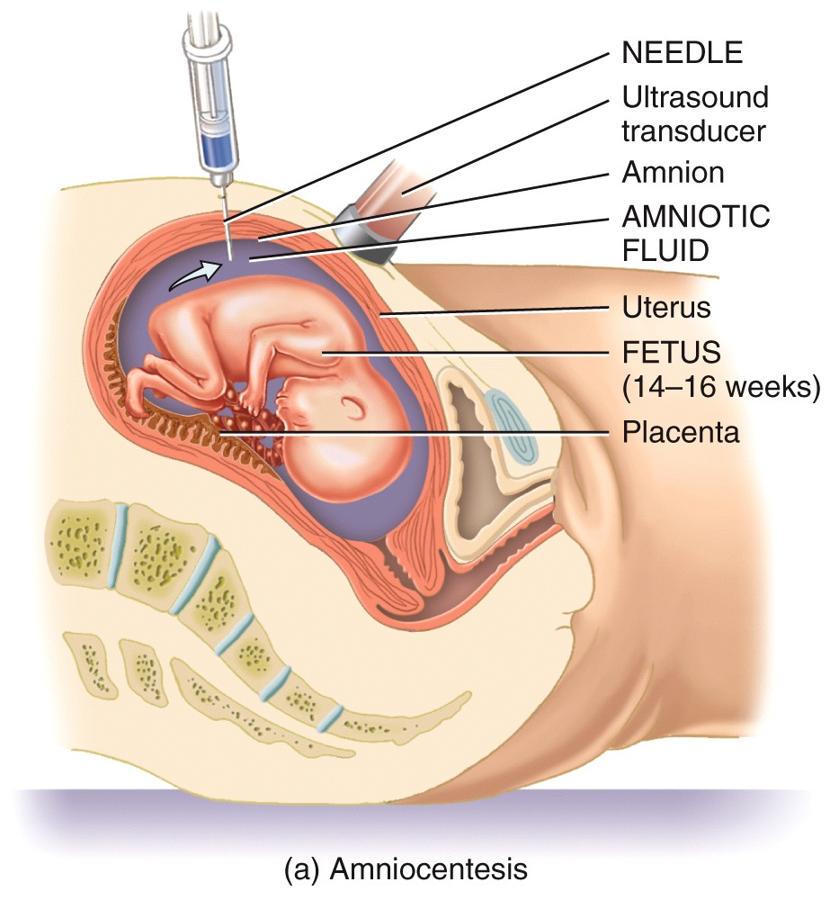 |
| Previous Image | Next Image |
| Description: Teratogens Any agent or influence that is able to cause developmental defects in an embryo or fetus is a teratogen. Any number of chemicals and drugs may be considered teratogens. Alcohol is the most common (fetal alcohol syndrome). Others include viruses, industrial chemicals, some hormones, antibiotics, cocaine and many others. Cigarette smoking during pregnancy has also been implicated as a cause of low infant birth weight, cardiac abnormalities, anencephaly and higher infant and fetal mortality rates. Ionizing radiation in many forms is also teratogenic. Exposure of the mother to x-rays or radioactive isotopes during pregnancy may cause microcephaly (small head), mental retardation and skeletal deformities. During pregnancy, several medical tests are used to detect fetal abnormalities, genetic disorders and well-being. Fetal ultrasonography is used to determine a more accurate fetal age when the date of conception is in doubt. It is also used to confirm pregnancy, determine fetal position, identify multiple pregnancies and other uses. Amniocentesis involves removing some amniotic fluid surrounding the developing fetus and analyzing it and fetal cells for genetic abnormalities. It is usually performed between 14–18 weeks. The needle used to collect the fluid is guided by ultrasound to avoid damage to the fetus or umbilical cord. Picture Stats: Views: 265 Filesize: 1MB Height: 900 Width: 830 Source: https://biology-forums.com/index.php?action=gallery;sa=view;id=40533 |
